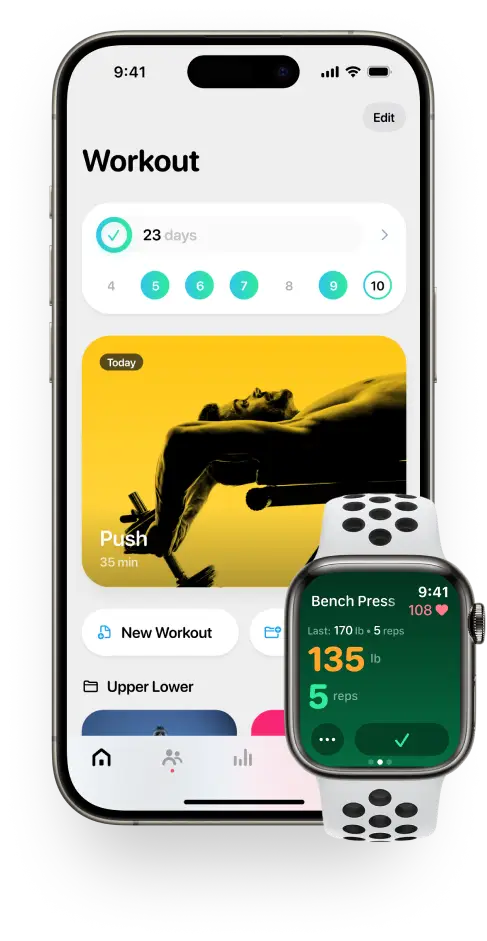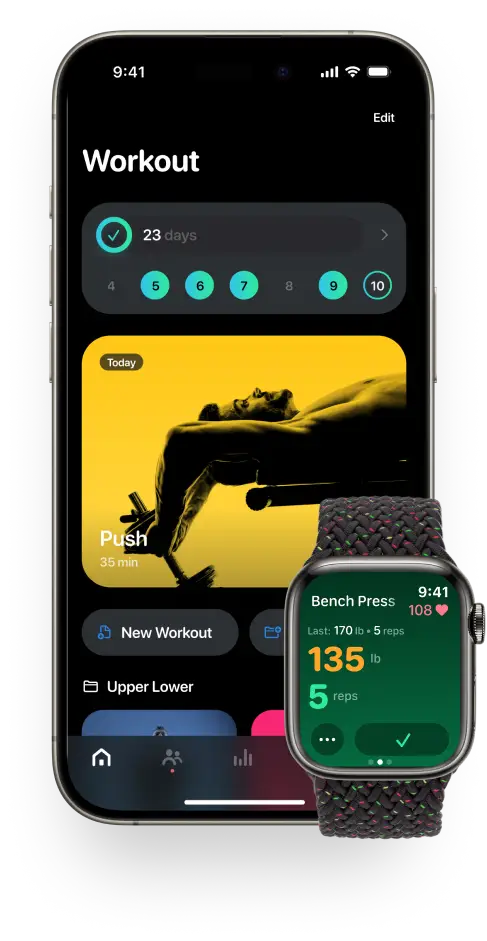Why Do My Knees Sound Like Rice Crispies? Popping & Crepitus
Snap, crackle, pop! No, it’s not your favorite breakfast cereal. It’s your knees.
We’re here to figure out why they do that. If you were wondering, “Why do my knees sound like Rice Krispies during my workout routine?” we may have the answers for you.
Here are some key causes of knee popping and what you can do to help.
What is Crepitus?
Crepitus refers to a crackling, popping, or grinding feeling or sound that can hit your joints or soft tissues.
You’ll often notice it when you’re moving, and it can happen for a few reasons. You can see or feel it, and it's usually associated with conditions that affect your joints, tendons, or other tissues.
What Causes Crepitus?
Gas Bubbles
Little gas bubbles can form in what’s called your synovial fluid— the fluid that lubricates your joints. When these bubbles burst or collapse, it can cause a popping or cracking sound. It’s usually harmless but can be a little disorienting.
Cartilage Wear or Damage
Are you in need of a knee replacement? Medical conditions like osteoarthritis cause the cartilage in your joints to wear down.
This causes your bones to rub against each other, so you’ll feel a grinding or crackling sensation.
Tendon or Ligament Movement
Tendons or ligaments can snap over bony parts of your body when you move. This may cause a popping sound and often happens if your muscles or tendons are tight.
Inflammation
Inflammation in a joint, like bursitis or tendinitis, can cause your tissues to rub against each other. This can result in crepitus.
Should I Be Concerned About Knee Cracking?
If crepitus is accompanied by pain, swelling, stiffness, or reduced range of motion, it may indicate an underlying condition like arthritis, cartilage damage, or joint injury. In these cases, it’s advisable to consult a healthcare professional.
In many cases, crepitus is harmless, especially if there is no pain, but persistent or painful crepitus may warrant further investigation.
How Do I Stop My Knees from Sounding Like Rice Krispies?
If you’re looking for treatments for knee cracking or noise around the knee joints, there are a few solutions that have good outcomes for helping you avoid the Rice Krispy noises.
1. Low-Impact Workouts
If your knees are a frequent source of pain, strain, or unpleasant/embarrassing noise for you, you might want to swap out a gruelling knees over toes program for lower-impact workouts.

What are low-impact workouts?
This can mean any type of exercise that puts less pressure on your joints and works slowly to increase your heart rate.
A few examples of low-impact movement include:
- Pilates
- Yoga
- Golf
- Walking
- Cycling
- Elliptical training (Check out the comparison between Elliptical vs Stairmaster to discover which might be better for you)
Compared to exercises like running and HIIT workouts, lower-impact workouts are a great option for alleviating some of the shock to your joints. That way, you avoid spiking your heart rate too fast or putting excessive strain on delicate joints like the knees.
2. Weight Management
Those who are overweight or obese may find they experience more stress, strain, or pain in their joints.

If you’re wondering, “Why do my knees sound like Rice Krispies?” ask yourself if you may also be carrying a few extra pounds.
An elevated BMI or too much mass can cause cracking or popping joints. If your joints are unable to support your weight properly, you may find losing a bit of weight can help reduce your knee strain.
There’s growing evidence that BMI is a poor metric for measuring people’s health individually. After all, many extremely jacked bodybuilders can easily measure into the “obese” category for weight with very little body fat due to dense muscles.
Despite the unethical use of BMI in contemporary general practice being more frequently documented, it can serve as a good starting line when combined with other metrics to determine if someone is at a healthy weight.
If you calculate your body mass index and find that you are considered significantly overweight, it may be a good idea to aim to reduce your body fat percentage and overall mass. A
Try to incorporate more cardiovascular workouts into your weekly workout routine. These can help boost metabolism and keep your metabolic age within a healthy range.
3. Anti-Inflammatory Diet
Eating a diet rich in anti-inflammatory nutrients is a great way to prevent your knees from injuries or sounding like Rice Krispies.
In osteoarthritis specifically and other conditions connected to knee or joint health, inflammation is associated with a lot of the pain you may experience.
Anti-inflammatory diets are positively associated with a lower risk of heart disease and some cancers while chronic inflammation is associated with a higher risk, alongside the joint pain you may be experiencing if you have Rice Krispy knees.
Opt for foods like:
- Dark leafy greens
- Olive oil
- Nuts
- Nuts
- Fatty fish
- Berries like blueberries, strawberries and cherries
4. Warm-Up Before Exercise
Would you hop up out of bed and try to run a marathon?
Improperly activated muscles and joints can be stiff and, thus, creaky or loud.
Your knees should be prepared for any workout you’re putting them through, so trying to undertake workouts like challenging squat progressions or even squats and deadlifts on the same day is not advisable with stiff joints!
Always warm up before a workout, focusing on the muscle or joint group that you’ll be targeting.
5. Stretch After Exercise
And don’t forget to cool down!

Include a stretch after you exercise. Stretching when your muscles are warm or have been properly worked from exercising can alleviate joint pain (the type that can be associated with cracking knees).
Big Picture
If you Googled “Why do my knees sound like Rice Krispies?” you may be psyching yourself out with all kinds of scary information about shattering your knee cartilage or severe arthritis.
Although these things do certainly happen, the most likely cause is simply crepitus related to synovial fluid or small gas bubbles popping in the fluid that lubricates your joints.
This can cause a cracking or popping sound, but it’s usually nothing to worry about. It can also come from:
- Tight tendons or ligaments
- Inflammation
If you feel pain along with the cracking sounds or you find the cracks persist over time and you find them distressing, speak to your doctor or healthcare provider.
A professional can help you assess whether your knees sounding like Rice Krispies is something to worry about or no big deal.
Don’t crack your knees or your bank account! Get personalized workout plans tailored to your progress. The Flex Fitness app is the simplest way to get just-for-you workouts that evolve as you do. It’s an exercise notebook that is only better in your pocket. Get started for free today.
References
Humphreys S. (2010). The unethical use of BMI in contemporary general practice. The British journal of general practice : the journal of the Royal College of General Practitioners, 60(578), 696–697. https://doi.org/10.3399/bjgp10X515548
Song, S. J., Park, C. H., Liang, H., & Kim, S. J. (2018). Noise around the Knee. Clinics in orthopedic surgery, 10(1), 1–8. https://doi.org/10.4055/cios.2018.10.1.1
Scheiber A, Mank V. Anti-Inflammatory Diets. [Updated 2023 Oct 28]. In: StatPearls [Internet]. Treasure Island (FL): StatPearls Publishing; 2024 Jan-. Available from: https://www.ncbi.nlm.nih.gov/books/NBK597377/
Related articles


Get fit with Flex
Build muscle & lose weight fast for free.
Available on iPhone + Apple Watch





